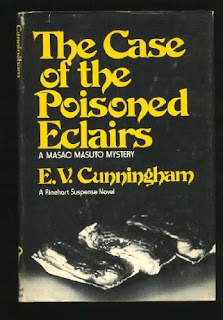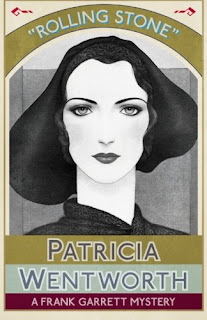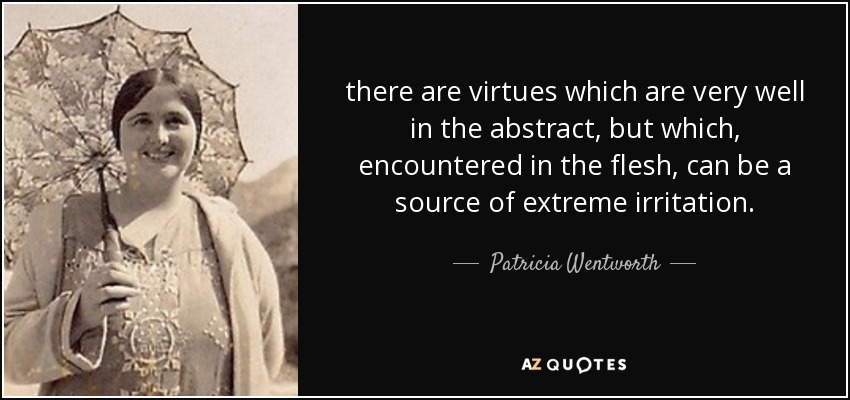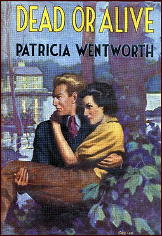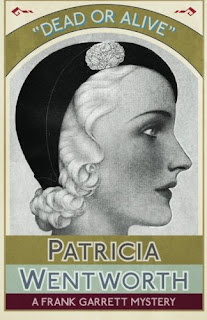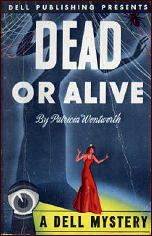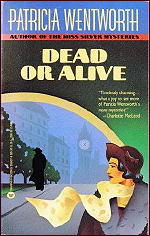Twenty-one
years
ago when Howard Fast was 82, he told an interviewer
he felt
compelled
his entire
life
to write. "If
I hadn't been able to become a good writer," he
told her,
"I'd have been a bad writer." As
I've read only one of the Fast's
85 published
books, I'm unqualified to determine in
sum which kind of writer he became. But if the average is even only
half as good as The
Case of the Poisoned Eclairs
I wouldn't be sticking my neck out too far to go with "good
writer." And I think it's safe to add that considering perhaps
his best-known work, Spartacus,
and his best-selling "Immigrants" series, we can bump that
average up to damned good writer. I've a hunch his fingers were still
trying to type more words when the final deadline caught up with him
at age 88.
I finally
caught up with Fast last week. The only excuse I can come up with is
that I'd always thought his name was a pseudonym for a "real"
author who didn't want his/her name associated with the potboilers
he/she was churning out. No evidence, just a feeling that a name like
"Howard Fast" was...oh, too paperback oriented, maybe? As
it turned out I came to Fast through the back door, thinking one of
his pseudonyms, E. V. Cunningham, was the real name for "Howard
Fast." I know. It's
a mixed up, muddled up, shook up world, but what the hey. And even
then I might not have read The
Case of the Poisoned Eclairs
but for my mystery blogger friend Tracy,
who lured me in with her review of one of Cunningham/Fast's seven
Masao Masuto mysteries. Ah so. Permit me to note that Tracy's love of
mysteries includes the mystery of her last name, a mystery I have yet
to solve.
The
Case of the Poisoned Eclairs is
the fourth in the series, and I will be reading the others. What
attracted me in Tracy's review was the idea of a Nisei (American born
of Japanese parents) police detective in Beverly Hills. Masao Masuto
and his Nisei wife do say "ah so" from time to time, but I
get the sense they use that stereotypical Asian expression for a
little ironic fun. The characters in this 1979 novel still refer to
Asians as "Orientals," and aren't hip yet to calling them
"Asians." Masuto is good natured about the ribbing he
takes, and only gently enlightens people who mistake him for Chinese.
He even gently explains to his boss, Capt. Wainwright, that his
(Masuto's) eyes are not slanted:
“'I
have always defended you as a non-racist,' Masuto said unhappily. 'My
eyes don’t actually slant, so it’s a kind of unhappy euphemism—'”
Wainright apologizes, claiming
he "got excited."
Masuto even pokes fun at
himself. He and his partner Sy Beckman, who between them comprise the
entire Beverly Hills homicide division, rib each other, as most cops
do, but in this case the rib bone is Masuto's Japanese anestry, and
he frequently starts it. Here's an example:
“What is it, Sy? What did
you learn?”
“You give me a creepy
feeling at times.”
“That’s because
I’m a wily Oriental."
As I read
along I started wondering if maybe Howard Fast was Asian, and if not,
wasn't he treading a tad on thin ice making fun of his character's
heritage, albeit some years before "political correctness"
raised its ubiquitous censorious head? Two things I’ve learned.
Fast was a Jewish Communist, and, having spent some time in prison
for refusing to give names to the House Un-American Activities
Committee, presumably knew rather well the risks he was taking with
ethnic sensitivities. Also, as the author of The
Art of Zen Meditation,
and
presumably a practicing Zen Buddhist himself, Fast undoubtedly knew
rather well the thoughts and actions of his Zen Buddhist chief
character.
 |
| Howard Fast |
The
spirit of ommmmmmmmm...
certainly resonated off the page with me. I found Sgt. Masao Masuto’s
Zen-disciplined manner, including his police voice, a pleasant,
sinus-calming contrast with the usual wise-cracking, angst-ridden
cops and detectives in all of the other crime novels I’ve read that
immediately come to mind. Here he is doing a little introspection
after the pretty, blonde secretary at his headquarters flirts with
him:
“He
never thought of himself as likable or lovable, a tall, dour-faced
second generation Japanese man, yet nothing pleased him more than
this almost consistent response on the part of women. He pardoned
himself;
he argued to himself that he had a good wife whom he loved, that he
was scrupulous in his behavior as a policeman, that he was content.
Or was he?”
A
little mystery never hurt anyone.
But
the damned eclairs did. First they killed a maid who took some home
when the ladies for whom the eclairs were intended—all of them
professing diet restrictions--turned them down. Then a dog dies when
it eats a piece of candy. The dog belonged to one of the dieting
ladies.
Masuto
and Beckman soon learn both corpses died of botulism poisoning.
Because of the poison’s nature which needs an airtight container in
which to grow, the detectives conclude someone had injected botulism
toxin into the pastries and candy. The women are wealthy divorcees,
and their ex-husbands the likely suspects.
Not
the most original of plot types, but the police work is authentic in
this essentially procedural mystery. I would have enjoyed the solving
of the case with any of the detectives I’ve read and enjoyed. But
there was something special about Masuto and Beckman working it. I
could say this special something was inscrutable, but I don’t have
the experience to make such ethnic fun. Wouldn’t be prudent, and,
anyway, wouldn’t be funny.
Besides,
I know what it was. The calm, good-humored voice, the effortless
narrative pacing, the Beverly Hills milieu, memorable supporting
Hollywood-type characters—one of the suspects is unquestionably
based on comedian Don Rickles-- and, yes, some first-rate suspense.
Ah
so.
 |
| Fast refusing to give names to HUAC |
[For
more Friday's Forgotten Books check the links on Patti
Abbott's unforgettable blog]

